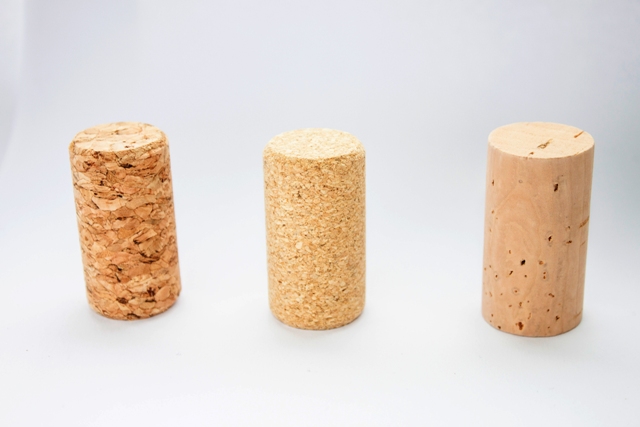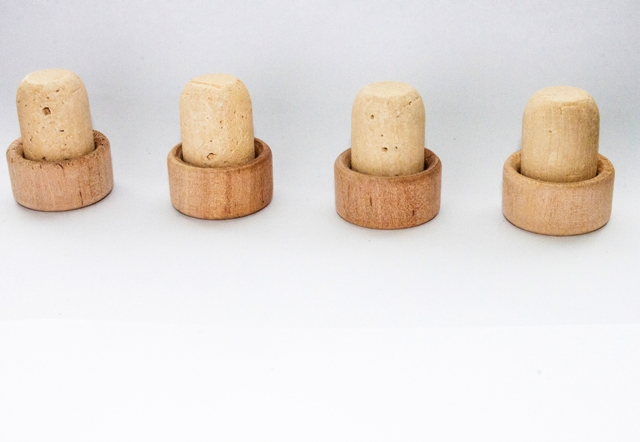Once you have decided that cork (rather than synthetic) is the way to go for your bar-top stoppers, you will then have to decide on the specification of cork that you should choose. Here we will look at the choice between agglomerated and natural cork and the different qualities of each that are available.
The most important division is between agglomerated and natural cork: agglomerated cork is made my gluing small granules of cork together whereas natural corks are made by punching a one-piece cork out of the cork bark as it comes off the tree.

Generally when it comes to bar-top stoppers, the agglomerated cork used is actually micro-agglomerated cork: this means that the granules used are smaller and that the corks are made by compression moulding rather than extrusion. Compression moulded micro-agglomerated corks make extremely reliable stoppers, with very predictable physical properties and consistent quality because the entire production process is very automated and controlled. The downside to using micro-agglomerated corks is that they are less elastic than natural cork, they contain polyurethane glue which is synthetic and not as environmentally friendly and the appearance is very uniform giving it a manufactured rather than organic appearance.
Natural corks are made using a much more traditional process, where strips of barks are lined up to have corks punched out of them in a range of sizes. These corks are then trimmed to size and quality selected according to the amount of surface imperfections that they have. The advantage of using natural cork is that it allows a small amount of oxygen through to the contents of the bottle (not normally relevant for the spirits that bar-top corks normally seal, but of course very important for wine), it is a 100% natural product, it is carbon negative because trees are not cut down to make cork (only the bark is removed for it to regrow over 9 years) and it is an attractive to look at and feel. Generally natural cork is used for bottling more premium spirits and indeed it will cost over double the price of micro-agglomerated cork (depending on what quality is used).

Natural cork qualities can differ slightly from one producer to another, but the standard qualities go from 8th through to 1st, then Super, Extra and then Flor. Generally for natural bar-top corks, you would use from 2nd quality upwards. For white spirits, quality is very important for natural cork as higher quality corks will not run the risk of discolouring the spirit as the imperfections in the surface of the cork are the locations most likely to leach colour. To complicate the quality choice further, often it works out more cost effective to have corks that are a blend of qualities (e.g. Super/First) as a broad spectrum of corks is more cost-effective to produce as fewer corks have to get rejected.
The final thing to note is that all the bar-top corks we supply are given a proprietary surface finish, which is different for dark or white spirits, which protects the interface between the spirit and the cork – the high alcohol level in spirits can degrade the cork over time (be it micro-agglomerated or natural) so it is very important that the surface treatment is correct.
If you need any help with choosing the right corks for your bar-tops, then please don’t hesitate to get in touch.







